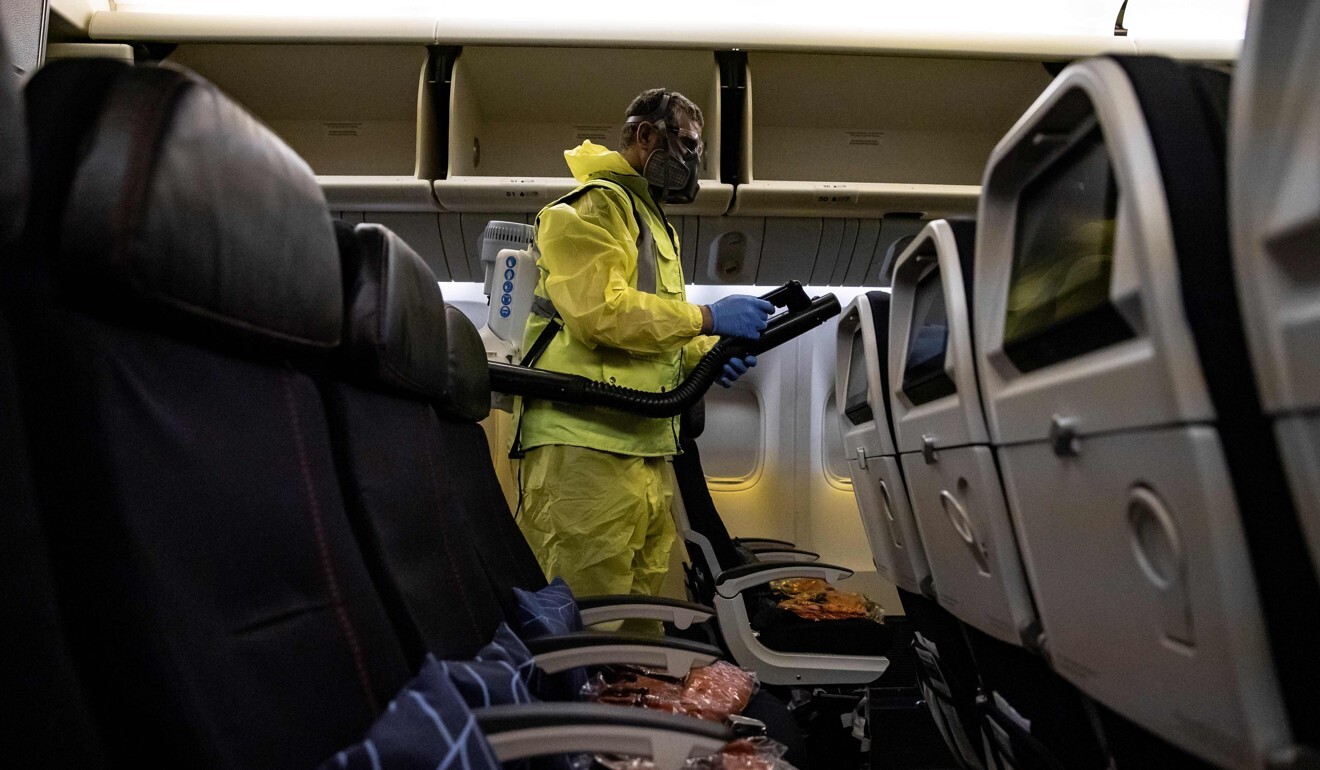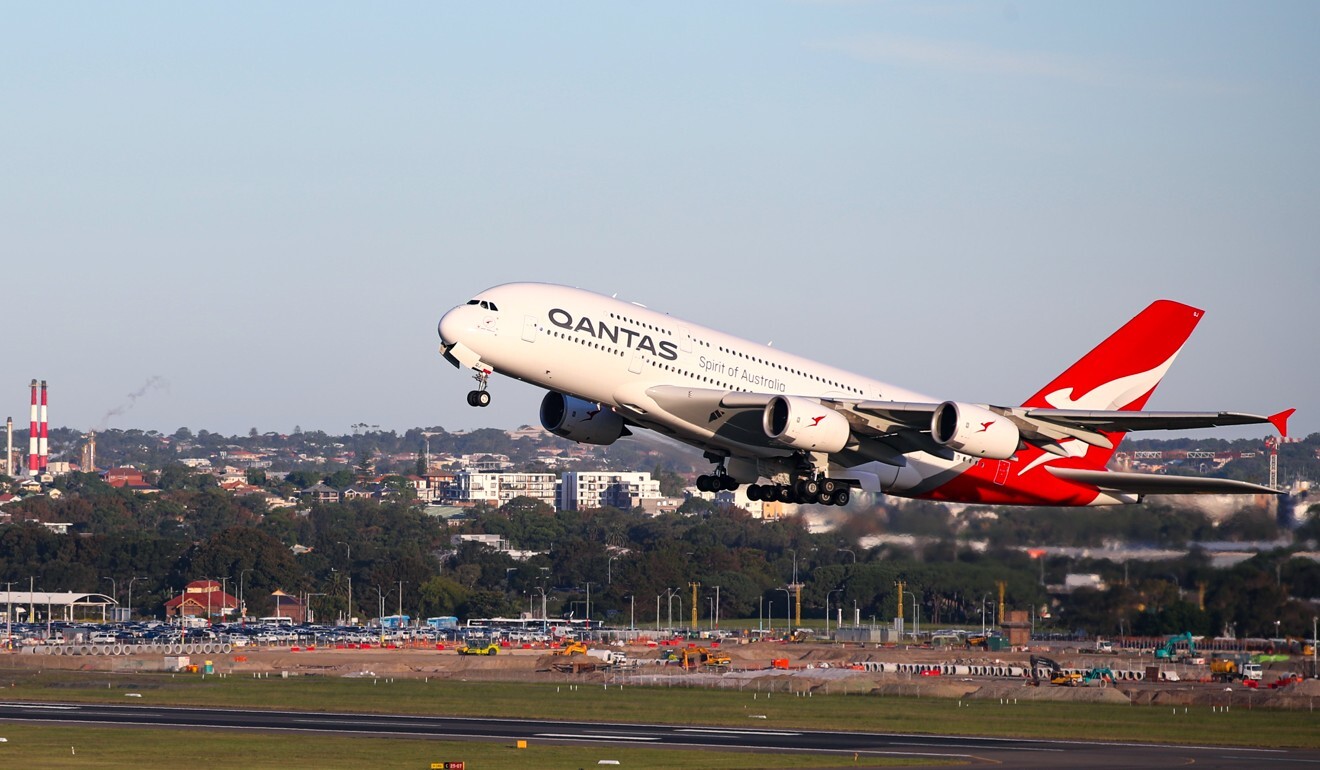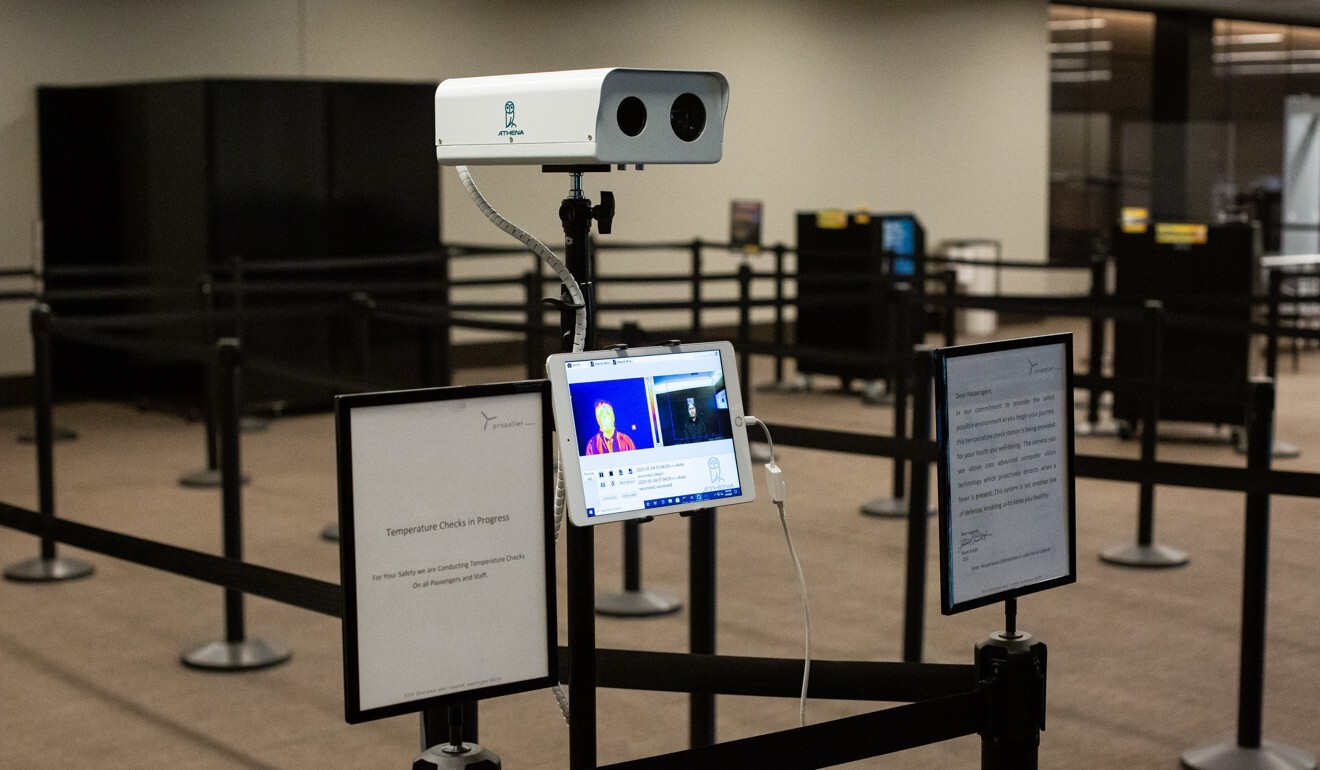
Coronavirus: Asia’s aviation sector divided over which safety measures to use
- Travellers, airlines and airports across Asia are grappling with a hodgepodge of rules post-pandemic that will make flying different in almost every country
- One of the biggest debates has been over whether middle seats should be empty – a measure that is likely to necessitate fare increases
International air travel creeps back with ‘bubble’ corridors
“When flying restarts, you are already working against the clock. There is still a latent fear of travel,” said Subhas Menon, head of the Association of Asia Pacific Airlines. “It’s not going to be such a smooth passage when you travel because of all of the measures that are going to be introduced.”

On board service is changing too. Business-class meals, once a selling point for premium carriers hiring celebrity chefs, have been reduced to pre-packaged items on carriers including Emirates, Air Canada and British Airways.
Why don’t Thais want to save their own airline?
Automation is also increasing, as carriers such as Qantas Airways ask passengers to check in online to limit contact with staff and other fliers.
“More than ever, the industry will work towards the vision of an entirely mobile-enabled journey,” said Sumesh Patel of technology provider SITA, which hopes to benefit from the trend.

Once on board, one of the biggest debates has been over whether middle seats should be empty.
That would limit aeroplanes to two-thirds of their normal capacity, not enough for most airlines to make a profit without increasing fares.
Afif Zakwan, 20, recently took a Malaysia Airlines domestic flight that was exempt from the requirement to fly half-empty.
He said he was comfortable being on a full domestic flight, but would not consider flying internationally for now.
The data shows that actual risk of catching coronavirus on an aircraft is already extremely low
“As more and more people travel for whatever reason, confidence and the power of word of mouth experiences will shape the … recovery,” said Mayur Patel of data firm OAG Aviation.
An official at the Japan Civil Aviation Bureau said the issue of an open middle seat, which could create unfair advantages if applied unevenly, was “controversial”.
“It’s crucial that countries where flights depart coordinate their responses with countries where they arrive,” said the official, who was not authorised to speak publicly.
In Australia, Qantas Group Medical Director Dr Ian Hosegood said social distancing, such as leaving the middle seat empty, was not practical on board, and the airline did not believe it was needed given the low transmission risk.

“The data shows that actual risk of catching coronavirus on an aircraft is already extremely low,” he said. “That’s due to a combination of factors, including the cabin air filtration system, the fact people don’t sit face-to-face and the high backs of aircraft seats acting as a physical barrier.”
In a briefing with reporters on Tuesday, Qantas CEO Alan Joyce said social distancing would mean limiting a 128-seat aeroplane to just 22 passengers.
“That means airfares are going to be eight to nine times more than they are today,” he said.

